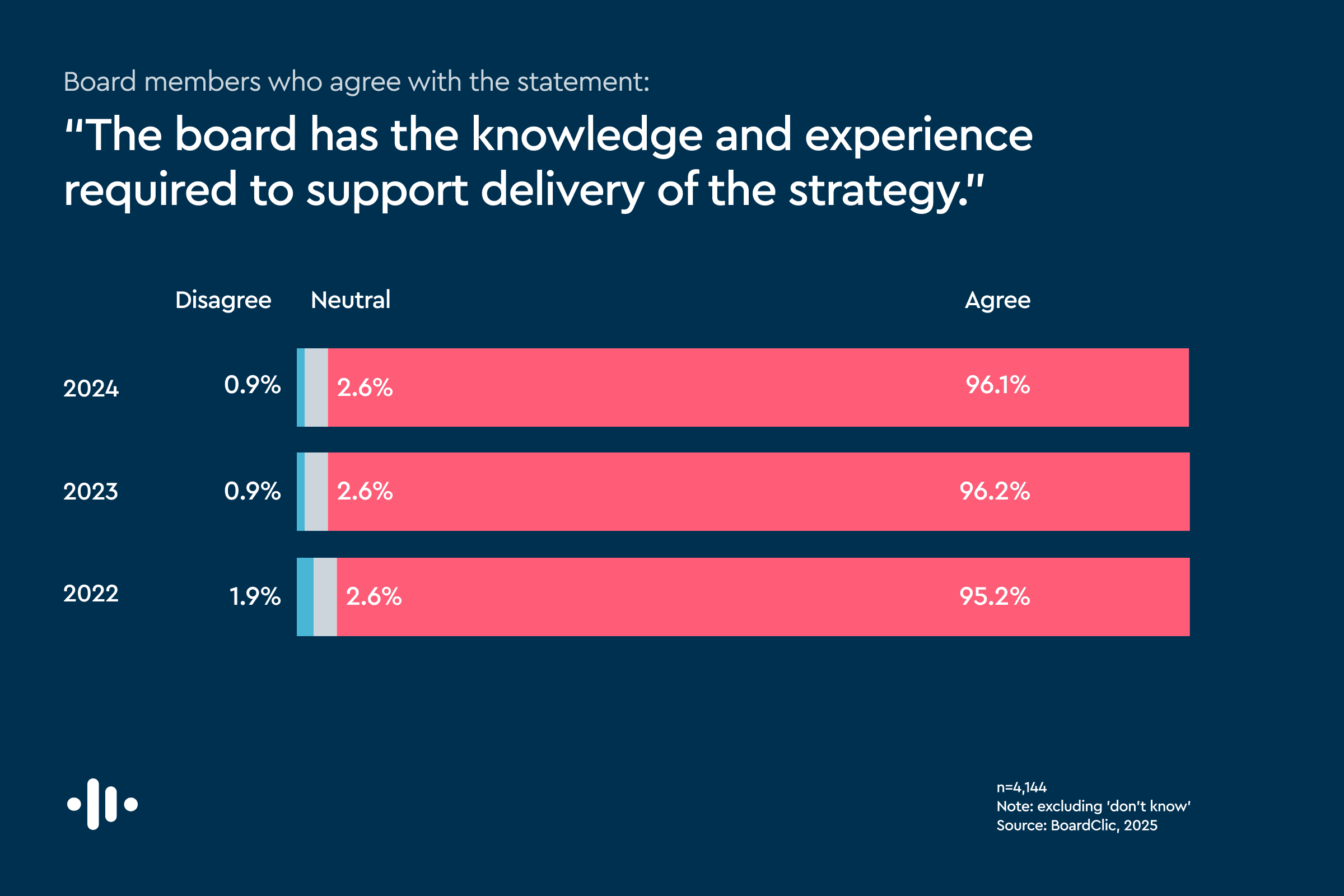We recently mined our platform’s user data, which is derived from over 1,000 board evaluations and includes feedback from more than 3,000 chairs and board members in listed companies, financial institutions, and investment firms across Europe. We wanted to know if directors believe investments in ESG improve their organisation’s bottom line. The results were a real eye opener.
Our unique platform data shows that boards in the UK are a lot less likely than their mainland counterparts to believe that ESG activities actually generate value. In Britain, just over two-thirds of directors think ESG factors add value, a far cry from the European average of 83% and an even bigger drop from the Nordic region, where 88% recognise the benefits.
And even more surprisingly, more than one out of 10 UK-based boards believe that investing in ESG activities adds no value at all. That compares with low-single digits for Europe as a whole.
Shifting perceptions
What’s driving these stark contrasts? Clearly, the expectation for all companies to align with ESG factors is climbing a steep trajectory. Partly, this is driven by regulation and partly by a shift in perceptions on what contributes value to a business. And these expectations don’t just come from customers, partners, NGOs and employees. Many of the world’s most significant investment houses have made ESG a top priority for their daily business.
These factors affect all companies in Europe, including the UK. In Britain, both the Financial Reporting Council and investors want companies to be more transparent and authentic in their ESG reporting. In the European Union, the Corporate Sustainability Reporting Directive entered into force this year, modernising and strengthening existing rules on what social and environmental information many companies must report for the 2024 financial year. Clearly, the differences in corporate governance codes between the EU and UK may affect overall confidence in ESG.
Lack of integration
But there’s another difference between the UK and Europe that better explains our results. Across Europe, stakeholders are increasingly calling for businesses to drop separate initiatives in favour of fully integrating ESG into their business strategy. However, while it seems boards across most of Europe are already integrating, this is less true in the UK. And we believe this distinction is important in explaining why the UK lags the rest of Europe.

According to our data, more than 70 percent of European boards discuss ESG at every board meeting, compared with just over half for UK boards. And that difference goes a long way to explaining why UK board members are more sceptical on the value of ESG. If the directors don’t regularly discuss ESG strategically, it’s unlikely that management and employees will incorporate those factors in their daily activities. Integrating ESG into strategy can help companies drive innovation, reduce risk, create new markets, and spur engagement in employees and top management.
Using this lens, the stark contrast between the UK and Europe on perception of the value of sustainability activities becomes easier to understand.
UK businesses should recognise the long-term strategic value of ESG factors and fully integrate that thinking into their strategy. It’s critical for overall performance and for staying competitive. If UK-based boards don’t start to take a more holistic approach to ESG, they risk being outpaced by their European counterparts in the global market.
About this research
Our data is derived from more than 1,000 board evaluations conducted on the BoardClic platform, the leading digital governance platform for board and CEO evaluations. The BoardClic platform includes feedback from over 3,000 board members across 400 organisations in 50 countries around the world.
This specific dataset, which focuses on ESG and sustainability, is drawn from board evaluations that took place on the platform between July 1, 2022, and February 15, 2023. It reflects the opinions and attitudes of 1,223 chairs and board members in listed companies, financial institutions, private equity and venture capital firms across Europe.
Ready to explore BoardClic?
Sign up to experience our free interactive demo today.





